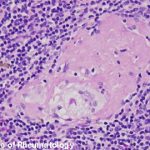Virtual reality technology may be a unique and immersive avenue for educating patients on rheumatic conditions and their treatments, with the potential to enable more informed decision making and improve care.


Jason Liebowitz, MD, FACR, an assistant professor of medicine at Columbia University Vagelos College of Physicians and Surgeons. He completed undergraduate studies at Johns Hopkins University, Baltimore, where he was inducted into Phi Beta Kappa. He attended medical school at Johns Hopkins School of Medicine and completed his Internal Medicine residency at Johns Hopkins Bayview Medical Center, where he served as chief resident. He completed his rheumatology fellowship at Johns Hopkins Hospital and was honored with the 2019 Distinguished Fellow Award from the American College of Rheumatology. His research and writings have been published in The New England Journal of Medicine, JAMA, JAMA Internal Medicine, Arthritis Care and Research and The Journal of Graduate Medical Education, among other journals. He participated in fellowships with the American Federation for Aging Research (Medical Student Training in Aging Research), the American Austrian Foundation (Max Kade Clinical Clerkship in Vienna, Austria), and the fellowships at Auschwitz for the Study of Professional Ethics (through Yale School of Medicine). He is a co-editor of the textbook Clinical Innovation in Rheumatology: Past, Present, and Future, a co-editor of the book Masterclass in Medicine: Lessons from the Experts, and a co-editor of the textbook series Interdisciplinary Rheumatology.

Virtual reality technology may be a unique and immersive avenue for educating patients on rheumatic conditions and their treatments, with the potential to enable more informed decision making and improve care.

Pulmonary hypertension and Raynaud’s phenomenon are just some of the symptoms patients with systemic sclerosis (SSc) may experience. Here are insights into the diagnosis and management of SSc.

Lisa Christopher-Stine, MD, MPH, discussed the latest findings on myositis and its subtypes, including insights into antibodies linked to cancer and treatments for these patients.

Michelle Sharp, MD, MHS, shared insights into the complexities of sarcoidosis, describing how she evaluates, diagnoses and treats patients.

Jun Kang, MD, addressed the intersection of dermatology and rheumatology, describing the nuance necessary to accurately evaluate skin manifestations and differentiate multiple conditions.

Brit Adler, MD, provided a detailed analysis into the symptoms and management of patients with postural orthostatic tachycardia syndrome.

WASHINGTON, D.C.—It is no small task to summarize an entire year’s worth of research accomplishments in any field of medicine, let alone one as complex as rheumatology. At ACR Convergence 2024, the Pediatric Year in Review not only provided a thoughtful summary, but also grouped advances along several different themes. Immune Health & More Jessica…

At this ACR Convergence 2024 session, experts discussed new and creative ways to design trials to account for real-world scenarios and to produce information relevant to practicing clinicians.

At the ACR Convergence 2024 Year in Review lecture, experts discussed advancements in disease understanding and treatments, as well as in basic science.

Experts provided insights into how precision medicine is being used to address the needs and care of patients with systemic sclerosis.